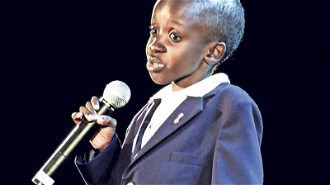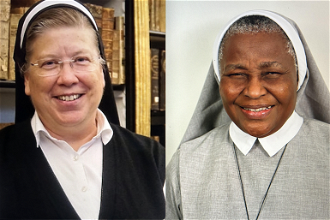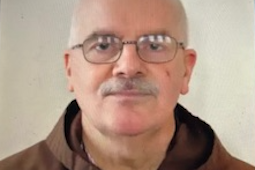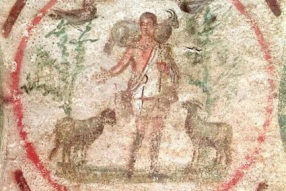World AIDS Day 2018 'Know your status' - is that the best we can do?

Nkosi-Bhekisisa in 2000. He died a year later
Source: Jesuit Institute South Africa
1 December 2018 marks the 30th anniversary of World AIDS Day. Three decades ago the world was becoming aware of HIV/AIDS and its fatal effect on human lives. It was a time of great fear and misinformation (how apt this description remains albeit for different reasons, in our world of 'fake news' and untamed populism).
I would buy the red ribbon, year on year, to remind me of the daily struggles of so many who lived with and died of the disease. Nkosi Johnson's (Xolani Nkosi) name is still the first to enter my mind as I think about AIDS today.
At the 13 th International AIDS Conference held in Durban in July 2000 eleven-year-old Nkosi, dressed in a suit, holding a microphone and showing a wide smile revealing his pearly white teeth, stood on stage. He fixed his eyes on the thousands-strong, mostly adult audience and began his speech: "Hi, my name is Nkosi Johnson, I am 11 years old and I have full-blown AIDS. I was born HIV-positive."
I have an abiding memory of that speech. The revelation by this young boy provoked a mixture of sympathy and shock across the world. But this public act also signalled a shift in the global AIDS discourse. It seemed that we were finally moving away from fear and hiding to a place where it was okay to speak out about a reality that plagued so many.
Internationally the theme adopted for this year's World AIDS Day campaign is 'Know Your Status'. In South Africa this theme has been incorporated into a wider National Wellness Campaign launched last month by Deputy President David Mabuza: 'Cheka Impilo - Know Your Status'. The idea is that we should not only know our HIV status but also our TB status, cholesterol count, sugar levels and blood pressure readings. Despite these being serious health problems, they are entirely manageable with the right course of treatment and lifestyle. But really: 'Know Your Status' - is that the best we can do?
A sense of déjà vu overcomes me. I don't want to be cynical but it is heartbreaking that after 30 years of concerted campaigning efforts for AIDS internationally we've stuck with this basic message. Don't get me wrong, there is much to celebrate and we have clearly advanced in the struggle against the disease.
UNAIDS in its global report reveals that research "shows that 75% of all people living with HIV know their HIV status". Still, there are an estimated 9.4 million people worldwide who do not know that they're infected and a further 19.4 million who are not receiving treatment. Most frightening for me was this: every week, around 7000 women, aged 15-24 years, become infected with HIV and young sub-Saharan women are twice as likely to be living with HIV as men.
Knowing these statistics of AIDS incidence among young southern African women, I ask: "Seriously, is the most urgent and applicable message for World AIDS Day 2018 really: Know Your Status "?
Follow The Jesuit Institute on Twitter @JesuitInstitute
Follow Ricardo da Silva SJ on Twitter @ricdssj





















